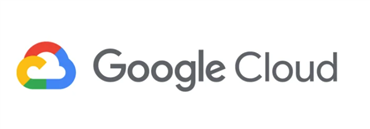
Google Cloud Platform (GCP): A Dominant Force in Cloud Computing
Google Cloud Platform (GCP) has emerged as a key player in the cloud computing industry, offering a suite of cloud services that cater to businesses of all sizes. Competing with industry giants like Amazon Web Services (AWS) and Microsoft Azure, GCP differentiates itself with cutting-edge AI, machine learning capabilities, and a deep focus on data analytics. But how does GCP position itself for the future, and what role will it play in shaping the cloud computing landscape? This article explores the history, services, competition, challenges, and future outlook of GCP in the evolving world of cloud computing.
Google Cloud Platform was officially launched in 2008 with the introduction of Google App Engine, a platform for developing and hosting web applications. Over the years, GCP has expanded its services, building a global infrastructure that includes computing, networking, storage, AI, and big data solutions. With major enterprise clients such as Spotify, Twitter, and Target, Google Cloud continues to grow its market share, leveraging its expertise in artificial intelligence and open-source technologies.
GCP offers a vast range of cloud computing services, with some of the most notable being:
Compute Engine: GCP’s virtual machine service providing scalable compute power for enterprises.
Kubernetes Engine: A managed environment for deploying, managing, and scaling containerized applications.
BigQuery: A powerful, serverless data warehouse designed for big data analytics and real-time insights.
Cloud AI and Machine Learning: Services like Vertex AI help businesses integrate machine learning models with ease.
Cloud Storage: Scalable and secure storage options for structured and unstructured data.
Anthos: A multi-cloud and hybrid cloud solution that allows businesses to run applications across different cloud environments.
Google Cloud operates in a highly competitive market alongside AWS and Microsoft Azure, each offering its own strengths:
AWS: The market leader with an extensive range of services and global reach.
Microsoft Azure: A strong enterprise-focused cloud provider with deep integration into Microsoft’s software ecosystem.
IBM Cloud and Oracle Cloud: Targeting enterprises with specialized cloud services and database solutions.
Alibaba Cloud: Growing rapidly in Asia, catering to e-commerce and global businesses.
GCP sets itself apart with its focus on AI, big data, and multi-cloud solutions, offering enterprises greater flexibility and innovation.
Despite its strengths, GCP faces several challenges in its journey to cloud dominance:
Market Share Competition: While growing, GCP still lags behind AWS and Azure in overall market share.
Enterprise Adoption: Many enterprises still rely on AWS or Azure due to longstanding relationships and integrations.
Pricing Structure: Some businesses find GCP’s pricing model complex, requiring optimization for cost efficiency.
Data Privacy and Security: With growing concerns over data privacy, Google must navigate regulatory challenges in different regions.
GCP’s continued success will depend on several strategic initiatives and technological advancements:
Investment in AI and Machine Learning: Google’s deep expertise in AI will drive further innovations in cloud-based AI services.
Expansion of Multi-Cloud Strategies: With Anthos, GCP is positioning itself as a leader in hybrid and multi-cloud deployments.
Sustainability Initiatives: Google has committed to running its data centers on carbon-free energy by 2030.
Enterprise Market Penetration: Expanding its enterprise partnerships and improving migration tools will be key to competing with AWS and Azure.
Google Cloud Platform is a formidable player in the cloud computing industry, leveraging its strengths in AI, data analytics, and open-source technologies. While it faces significant competition, GCP’s innovative approach and commitment to sustainability position it well for the future. As cloud adoption continues to rise, GCP is set to play a crucial role in shaping the next generation of cloud computing solutions.